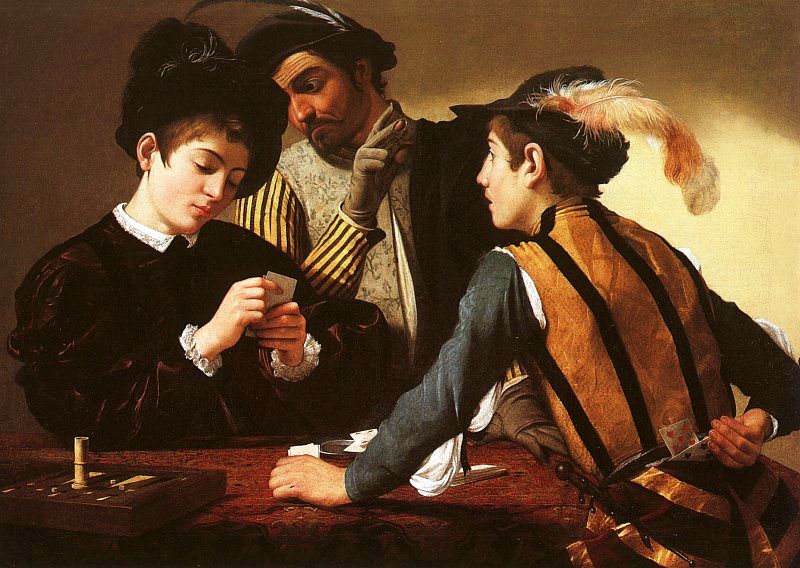Polish Bank on:
[Wikipedia]
[Google]
[Amazon]


 Polish Bank (german: Polnische Bank), Polski Pachuck, Grundehrlich, Polish Red Dog or Stitch, is a
Polish Bank (german: Polnische Bank), Polski Pachuck, Grundehrlich, Polish Red Dog or Stitch, is a
Short description
at ''www.pagat.com''
(section in Part 3) at ''www.Spielkarten24.de'', Gerd Matthes {{Banking games Hungarian gambling games Austrian gambling games Banking games 19th-century gambling games


 Polish Bank (german: Polnische Bank), Polski Pachuck, Grundehrlich, Polish Red Dog or Stitch, is a
Polish Bank (german: Polnische Bank), Polski Pachuck, Grundehrlich, Polish Red Dog or Stitch, is a gambling game
Gambling (also known as betting or gaming) is the wagering of something of Value (economics), value ("the stakes") on a Event (probability theory), random event with the intent of winning something else of value, where instances of strategy (ga ...
using playing cards which resembles Häufeln and Mauscheln
Mauscheln, also Maus or Vierblatt, is a gambling card game that resembles Tippen, which is commonly played in Germany and the countries of the old Austro-Hungarian Empire.
Background Origin of the name
The name Mauscheln means something like ...
. The game is recorded as early as 1836 in the Austro-Hungarian Empire
Austria-Hungary, often referred to as the Austro-Hungarian Empire,, the Dual Monarchy, or Austria, was a constitutional monarchy and great power in Central Europe between 1867 and 1918. It was formed with the Austro-Hungarian Compromise of ...
where it was banned on the grounds of being purely a game of chance or hazard.
Rules
The game is played with a 52-card pack of French playing cards. The Ace is the highest card; the Two the lowest. At the beginning of a game, the banker places an agreed fixed amount on the table in front of him. The other players now bet against it, but the sum of the opponents' bets must not exceed "half" the amount in the bank. The banker shuffles, offers the pack for cutting and plays the first card face up to the table and then deals the next three cards are to the other players. If his opponents can beat the banker's card, i.e. if there is a card of the same suit and higher rank than the banker's among the three punters' cards, the opponents win in the ratio 2:1. If the opponents cannot beat the banker's card, the banker collects the bets, thus increasing the bank total. The banker may not, however, take any winnings from the bank unless he surrenders the role of banker. If the bank goes bust (''gesprengt''), i.e. there is no more money in the bank, the banker has to give the bank up and the player to his left becomes the next banker. If the amount in the bank after a game is at least three times the original deposit, the banker may hold the bank for one last 'trick round'. After this game, the banker must hand over the bank to his left neighbour. If the bank is not bust after this round, the amount in the bank belongs, naturally, to the banker.Probabilities and bank advantage
The probability of a win for the punters is 30.38% and, for the banker, 69.62%. Due to the payout ratio of 2:1, this results in abank advantage
Games available in most casinos are commonly called casino games. In a casino game, the players gamble cash or casino chips on various possible random outcomes or combinations of outcomes. Casino games are also available in online casinos, where ...
of 8.85 %.
If a pack of 32 (Piquet pack
Piquet (; ) is an early 16th-century plain-trick card game for two players that became France's national game. David Parlett calls it a "classic game of relatively great antiquity... still one of the most skill-rewarding card games for two" but ...
or German-suited
German-suited playing cards are a very common style of traditional playing card used in many parts of Central Europe characterised by 32- or 36-card packs with the suits of Acorns (''Eichel'' or ''Kreuz''), Leaves (''Grün'', ''Blatt'', ''Laub ...
) cards is used instead of a 52-card pack, the probability of winning is 29.55% for the punters and 70.45% for the banker, increasing the bank advantage to 11.35%.
See also
*Mauscheln
Mauscheln, also Maus or Vierblatt, is a gambling card game that resembles Tippen, which is commonly played in Germany and the countries of the old Austro-Hungarian Empire.
Background Origin of the name
The name Mauscheln means something like ...
External links
Short description
at ''www.pagat.com''
(section in Part 3) at ''www.Spielkarten24.de'', Gerd Matthes {{Banking games Hungarian gambling games Austrian gambling games Banking games 19th-century gambling games